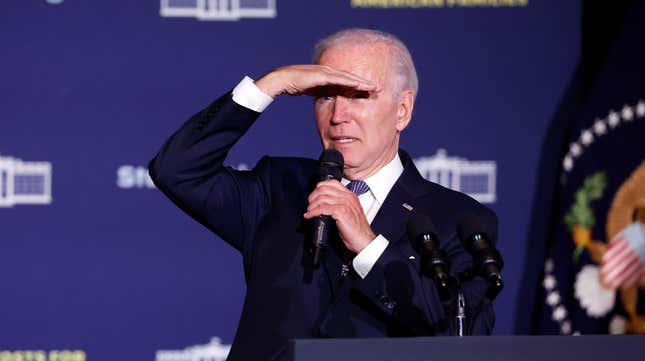Biden Asks Supreme Court to Let Student Loan Forgiveness Go Through
What's that? Is that student loan debt relief on the horizon?
Politics

President Joe Biden’s attempt at fulfilling a campaign promise to cancel $10,000 in student loan debt per borrower was met with relief. Well, unless you’re a conservative bent on keeping an entire class of under the thumb of crippling debt. But if you’re reading this, you’re probably not that kind of a person; instead, you’re wondering what the hell is happening with federal student loan forgiveness.
The most important thing to know is that multiple federal courts have temporarily blocked the debt relief program under the Department of Education. Judicial action has meant the Education Department isn’t even accepting new applications at this time; however, they are maintaining already submitted applications. In a bolded statement on the application website, the department wants borrowers to know it’s working on fixing this: “We are seeking to overturn those orders.”
-

-

-

-

-

-

-

-

-

-

-

-

-

-

-

-

-

-

-

-

-

-

-

-

-

-

-

-

-

-

-

-

-

-

-

-

-

-

-

-








































